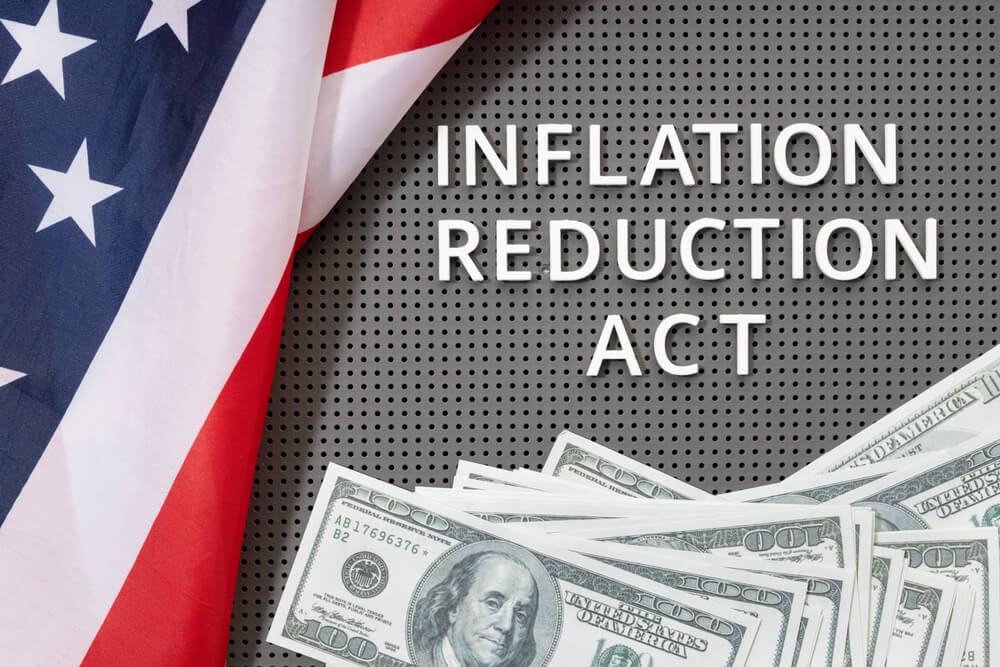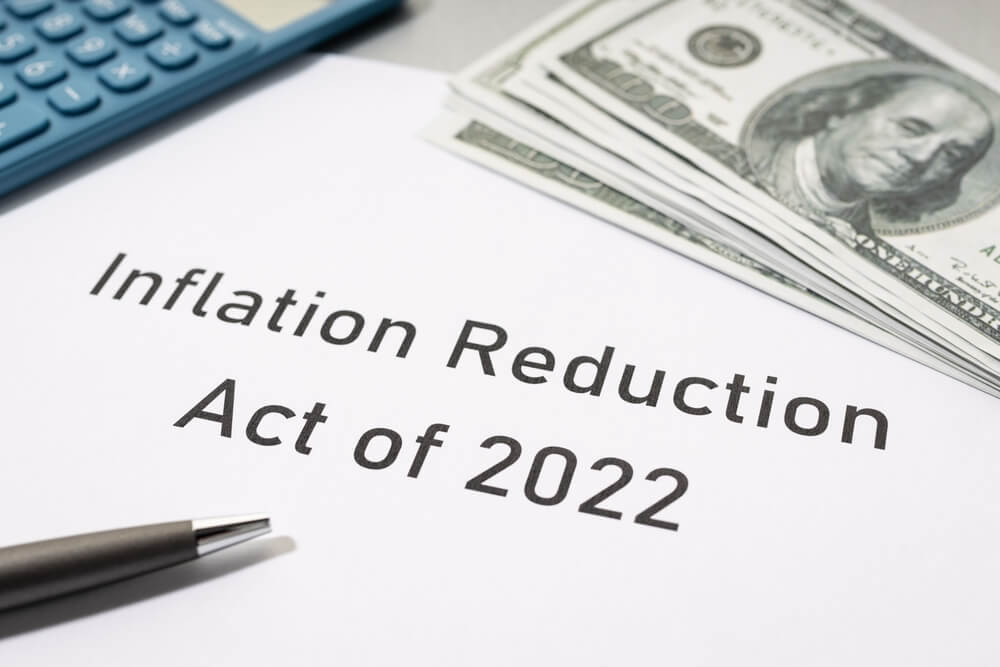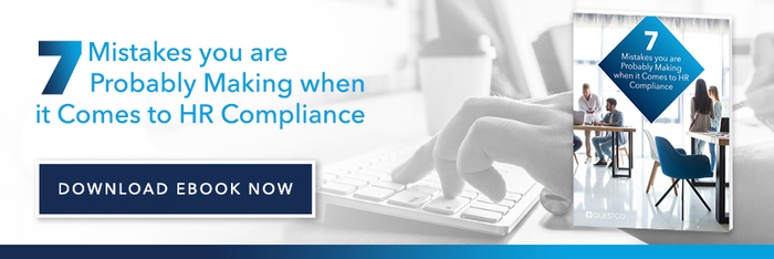Topic Outsourcing HR / PEO
How the Inflation Reduction Act Will Impact Employer-Sponsored Health Insurance

December 15, 2022 | By Questco Companies

Will the Inflation Reduction Act of 2022 (IRA) burden employers with high premiums? While the IRA seeks to promote climate action and make healthcare more affordable, it might have precipitated new challenges for employers. Business growth could be adversely affected if healthcare spending continues at the current rate. How can employers best manage premium increases?
How will the Inflation Reduction Act impact Employer-Sponsored Health Insurance?
Congress passed, and the president signed the Inflation Reduction Act of 2022. While the legislation focuses mainly on reducing income inequality and climate action, it could significantly affect group health plans. Some employers could witness insurance premium increases.
Main provisions of the Inflation Reduction Act
The IRA contains a wealth of provisions from minimum corporate tax rates to healthcare:
A minimum 15% corporate tax
A 15% tax will be levied on corporations with more than $1 billion in annual income. Companies seeking stock buybacks will face a 1% excise tax.
Healthcare reforms
The IRA aims to promote affordable health care by lowering the cost of prescription drugs and extending specific subsidies.
IRS tax enforcement
IRA provides for investment in the Internal Revenue Service (IRS) of up to $80 billion in the next ten years. The capital increase aims to help the tax agency to perform its duties well.
Climate change investments and energy security
IRA promotes climate action by offering tax credits for households to minimize energy costs. Incentives aim to reduce carbon emissions and make investing in clean energy easier.
While healthcare changes are rooted in Medicare, some experts predict that IRA could adversely affect employer-sponsored health insurance. Let us consider specific healthcare options for employers to minimize premiums.

How has the IRA changed health insurance?
It can help to understand specific changes in health insurance when anticipating changes in group insurance premiums. Here are the fundamental changes:
Prescription drugs price reduction
The legislation allows Medicare centers to negotiate lower drug prices. Medicare will set a $2,000 cap on annual drug costs (out-of-pocket spending). IRA also set a cap for insulin-based medication to keep healthcare costs within a specific range.
New HDHP insulin safe harbor
IRA now allows high-deductible health plans to cover broader insulin uses than before. Individuals can now access selected insulin products without adversely affecting their eligibility to contribute to a health savings account (HSA).
Affordable Care Act (ACA) subsidy extension
The federal government subsidizes insurance premiums under the ACA. IRA extended the expiry deadline to 2025. The US Department of Health and Human Services reported that approximately 3 million beneficiaries could lose their insurance if ACA expired.
Why did employers initially support the IRA?
Employers supported IRAs through organizations such as the Purchaser Business Group on Health (PBGH). Supporters noted how high spending on healthcare by employers limits their ability to grow. Reduced access to capital could translate to problems such as suppressed job creation and reduced government income. Employers further attributed few employees' benefits and low wages to high expenditure on healthcare. PBGH proposed the extension of the Medicaid negotiated prices to the commercial market.
Furthermore, setting an inflation cap on healthcare spending through the IRA could yield a few benefits for employers. The importation of low-priced medications confirmed to employers the benefits of reduced healthcare costs. Some employers proposed value-based payment models and shifting focus to individual coverage health reimbursement arrangements (ICHRAs).
Due to previous federal decisions, employers believed that IRA benefits would extend to the commercial market. For instance, urging the Federal Trade Commission (FTC) to ban the "pay for delay arrangements" indicated the commitment to lower medication prices. The arrangement helps pharmaceutical companies incentivize generic drug manufacturers to avoid selling particular products directly to the market. Ultimately, most employers agree that healthcare spending was growing at an unsustainable rate.

Why are employers now worried about the IRA?
Some employers worry that the price reduction for Medicare and Medicaid beneficiaries could lead to higher prices in commercial plans. Proponents of the idea base their claims on the possibility of pharmaceutical companies losing revenue due to IRA. Thus, drug producers are expected to make up for the lost revenue by increasing prices for other insurance providers—besides the government. Market-based reforms are believed to be best in maintaining affordable healthcare for everyone.
However, the finished IRA legislation only addresses Medicare-negotiated drug prices and sets a cap on the price of drugs. Some employers perceive the bill as an incomplete attempt to address the problem of high medical costs in the US.
Failure to address market factors such as drug manufacturing costs could lead to burden transference to privately-insured individuals. The problem could limit your business's ability to support many employees.
The American Rescue Plan Act of 2021 (ARPA) provides for the enhanced premium tax credit. Initially, ARPA limited premium tax credits to households with income between 100% and 400% of the federal poverty line. Now, IRA has increased the number of households eligible for the credits. Some employers are concerned that the expansion exposes them to a higher penalty risk if employees claim premium tax credits. The problem can be significant for companies with 50 employees and more (large employers).
How can employers minimize their premium increase?
Premium increases may be inevitable for employers as per the IRA provisions. However, you can minimize the additional healthcare spending costs for your organization. Reducing organizational costs can help your company to maintain a high growth rate despite healthcare cost increases.
Joining a professional employer organization (PEO) can minimize insurance costs while reducing your organization's risks. PEOs can significantly lower employee management costs as a comprehensive HR outsourcing solution. PEOs provide workers' compensation, payroll administration, HR technologies, employee benefits, and HR consultation.
PEOs can leverage their huge workforce to negotiate better health insurance arrangements. Your business can reduce the risk facing you by increasing the size of the risk pool. Although the IRA does not directly affect group health plans, large employers could face a rise in drug prices which indirectly impacts premiums.




